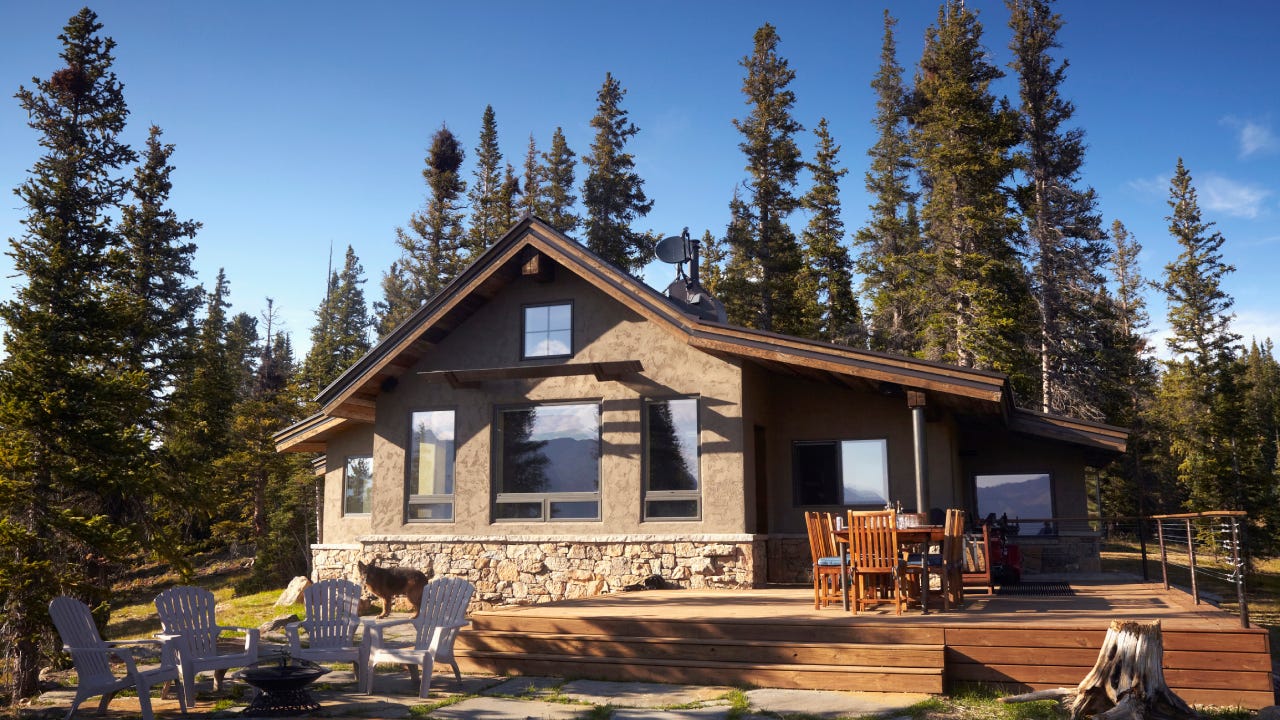Closing costs in Nevada: Who pays for what?

Real estate transactions involve a variety of expenses. Among them are closing costs, which are the fees paid during the final step of the real estate sale process, the closing. The sale is not complete until both the buyer and the seller pay their share of the closing costs. These fees can be significant, often totaling between 2 and 5 percent of the home’s sale price, according to Freddie Mac. (That’s not including real estate agent commissions.)
In the Silver State, closing costs typically include state property taxes and transfer taxes, as well as fees related to the title, the home loan and more. If buying or selling a home here is in your future, here’s what you need to know about closing costs in Nevada.
How much are closing costs in Nevada?
The average amount paid in closing costs across the United States was nearly $7,000 in 2021, according to the most recent data from CoreLogic’s ClosingCorp. But the exact amount you’ll pay in closing costs depends on the state where the sale takes place.
In Nevada, closing costs averaged about 1.5 percent of a home’s sale price. That’s a higher rate than its neighbors to the east and west, Utah and California, which both averaged 1.0 percent. But it’s far from the highest in the country: Delaware’s closing costs average 5.4 percent, for example.
The median sale price for a home in Nevada as of June was $461,800, according to Redfin data. At that price, closing costs of 1.5 percent would come to about $6,927 — right around the national average. However, home prices can vary widely depending on where in Nevada you’re buying. In Reno, for example, June’s median price was more than $100,000 higher than it was in Las Vegas, which would mean higher closing costs.
Who pays closing costs in Nevada, buyers or sellers?
No matter what state the home sale takes place in, both buyers and sellers are responsible for paying a portion of the closing costs. But neither party pays the full amount themselves. Here’s a breakdown of the costs each party is typically responsible for paying in Nevada. (Keep in mind that, while Nevada does not require homebuyers or sellers to hire an attorney, you may still want to do so to cover your interests. If you do, their legal fees will also be due at closing.)
Closing costs for buyers
- Lender fees: If you’re using a mortgage to purchase a home, as the lion’s share of buyers do, then you’ll likely pay fees for the application and origination of your loan. Checking your credit is part of the process, and a fee is typically charged for that as well. And if you opt for mortgage discount points to lower the interest rate, the cost of those will also be due to your lender.
- Appraisal fee: To ensure that the home is worth the amount of money your lender is providing you, an appraisal must be conducted. And while it’s the lender that requires this step, it is the homebuyer who’s on the hook to pay the cost.
- Home inspection: Though not a requirement, most buyers also pay to have an inspection of the home before closing. This process, conducted by an independent third party, helps identify whether there are any safety or structural issues that need addressing. Any problems found might be used as leverage in negotiations.
- Property taxes: It’s not unusual for buyers to be required to prepay a portion of the property taxes on a home as part of the sale process.
- Title fees: As part of the closing process, a title search will be conducted in order to determine whether there are any liens on the home. And title insurance protects against claims on the home or ownership issues — in Nevada, the buyer typically pays for the lender’s policy.
Closing costs for sellers
- Realtor commissions: Realtor commissions have historically been the most expensive part of closing costs for home sellers. Each agent involved in the transaction typically earns between 2.5 and 3 percent of the home’s sale price. Until recently, the commission for both agents was paid by the seller — 3 percent of a median-priced $461,800 home comes to a significant $13,854. However, due to a recent lawsuit settlement, buyers might now need to pay their own agents directly.
- Transfer tax: This fee covers the cost of transferring property ownership. In Nevada, the rate is $1.95 for every $500 of a home’s value — or about $1,800 for a median-priced home. Washoe, Churchill and Clark counties all charge an additional rate on top of that.
- Title fees: The expenses associated with title searches and insurance can sometimes become the seller’s responsibility to pay.
- Property taxes and HOA fees: If there are property taxes remaining due at the time of the sale, they must be paid by the seller at closing. The same is true for HOA fees, if you’re part of a homeowners association.
- Seller concessions: If a seller agrees to cover any costs for a buyer or make any other concessions in order to close the deal, which is not required but also not uncommon, these expenses are usually taken from the proceeds of the home sale at closing.
- Mortgage payoff: If there’s a balance remaining on your current mortgage, that must also be paid when you sell. The amount due will be deducted from the home’s sale price and sent to your mortgage lender; there may be other fees associated with this as well.
Lowering your closing costs in Nevada
Many aspects of the real estate game are negotiable — and that includes closing costs. With the exception of taxes, many closing costs can be negotiated. Realtor fees, for example, are often open to negotiation, particularly for higher-priced homes.
Buyers can also try to negotiate with the seller to cover some of their closing expenses. For example, if the home inspection reveals a need to repair the HVAC unit, the buyer can ask the seller to cover that cost. They don’t have to agree, but such concessions are often a small price to pay to keep the deal moving along smoothly.
Finally, buyers can also lower closing costs by seeing if they’re eligible for government-sponsored homebuying programs meant to help defray such expenses. Nevada has many programs aimed at helping homebuyers with both down payment and closing costs, particularly for first-time homebuyers. Some lenders may also offer programs of their own.
Find a local real estate agent
Real estate transactions are complex and, for most people, are usually the biggest financial transaction of their lives. Having an experienced local agent by your side to navigate the process can help ensure that things go smoothly. If you don’t know where to start, ask friends and family for referrals and keep an eye on yard signs in your area. It’s a good idea to interview a few candidates before making a decision, and taking the time to review an agent’s online presence and reviews from previous clients can also be helpful.
FAQs
Why we ask for feedback Your feedback helps us improve our content and services. It takes less than a minute to complete.
Your responses are anonymous and will only be used for improving our website.
You may also like

What is a broad-based index fund?

What is business travel insurance?

Closing costs in Oklahoma: Who pays for what



